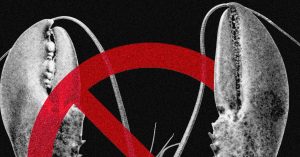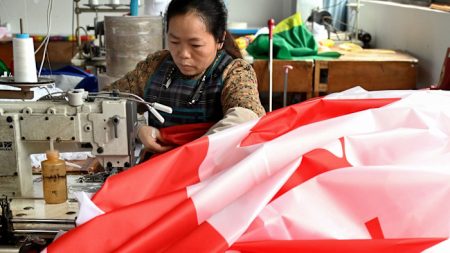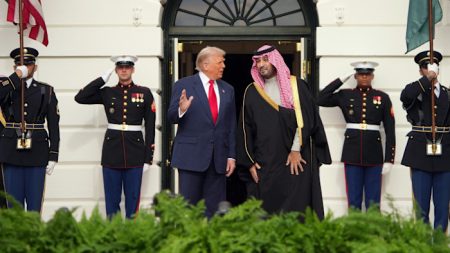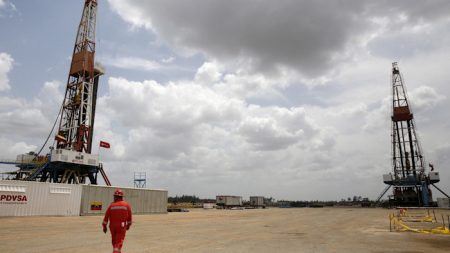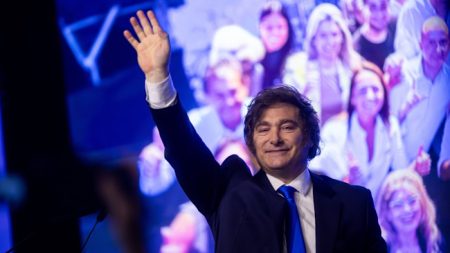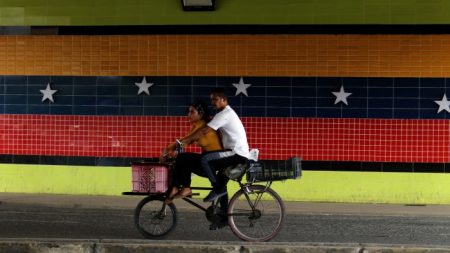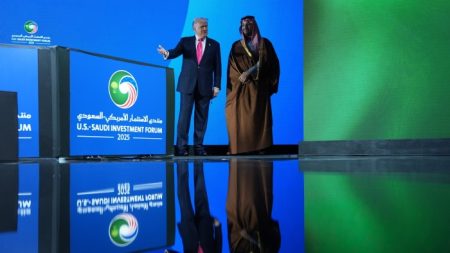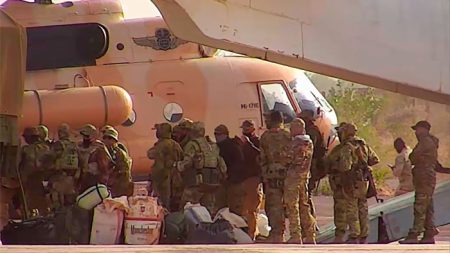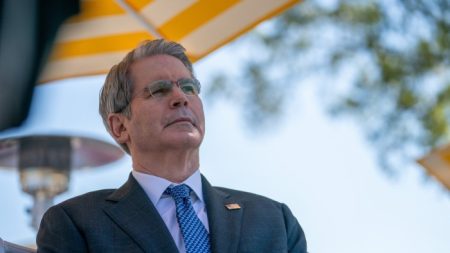Unlock the Editor’s Digest for free
Roula Khalaf, Editor of the FT, selects her favourite stories in this weekly newsletter.
Imran Khan’s allies have accused Pakistani authorities of rigging the vote count in Thursday’s election to block them from power after they achieved a stunning electoral success.
Candidates loyal to Khan’s Pakistan Tehreek-e-Insaf party won the most seats but fell short of a majority. They allege they won even more seats, despite a military-backed campaign of arrests and harassment designed to crush the party before the polls.
Although counting was still not complete by Saturday afternoon, independent candidates — overwhelmingly PTI leaders barred from running under the party symbol — had secured 100 of the 265 seats being contested, according to Pakistan’s Election Commission.
That put them comfortably ahead of their main rivals, Pakistan Muslim League-N of veteran leader Nawaz Sharif at 71 seats and the Pakistan People’s party of Bilawal Bhutto Zardari, son of assassinated former prime minister Benazir Bhutto, at 54.
The PML-N and PPP, establishment parties that had long ruled Pakistan before the PTI’s rise, launched negotiations to form a ruling coalition late on Friday.
Raoof Hasan, a PTI leader, said that dozens of “seats have been tampered with”. “Unfortunately because of the reversal of results overnight, our lead has decreased,” Hasan told journalists, vowing to challenge the results in court.
The party called on supporters to protest peacefully outside electoral offices in the approximately 10 constituencies where the results had still not been announced by Saturday afternoon.
The election was marred by delays, a mobile network blackout and alleged irregularities during the vote count, with the EU warning of “allegations of severe interference in the electoral process”.
The US said it was “concerned about allegations of interference in the electoral process” but would “work with the next Pakistani government, regardless of political party”.
The PTI alleged election officials had manipulated the results to reduce their seat share. In a message from Khan, who has been in jail since August and was ineligible to run in the contest, the former prime minister said his party had won 170 seats.
“We have won the 2024 election with a two-thirds majority,” the message, which the PTI converted into an AI-generated clone of Khan’s voice, said. “Everyone has seen the strength of your vote. Now you must demonstrate the ability to safeguard your vote.”
With no party winning an outright majority, the stalemate risks plunging the new parliament into acrimony and dysfunction at a time when Pakistan is struggling with an economic crisis.
Sharif’s brother Shehbaz met Zardari as the PML-N and PPP, which had already served in a shortlived coalition after Khan was ousted as prime minister in 2022, sought to beat to PTI to power.
Hasan Askari Rizvi, a political scientist, said on Saturday that he expected the two parties to have an edge in forming the new government but “the PTI [will] agitate inside the parliament and outside the parliament”.
Some in the PTI indicated that they would also be willing to form a coalition with smaller parties, but analysts warned that preventing defections among the technically independent candidates would prove particularly difficult.
“The periphery of the independents will be up for sale to the highest bidder,” said Tahira Abdullah, a human-rights activist.
Abdullah, who monitored the election on Thursday, said that in the three constituencies she visited, authorities had attempted to block her and others from witnessing the ballot counting.
The evidence she saw “points to only one conclusion: that something happened in the middle of the night that they didn’t want observers to witness,” she said.
Analysts had expected the PTI to have little chance of success. After losing power in a no-confidence vote in 2022, Khan fell out with the army — whose support is considered crucial to ruling Pakistan — culminating in the arrests of thousands of PTI leaders and supporters in the build-up to the polls.
Pakistan’s army chief General Asim Munir defended the election as “free and unhindered” on Saturday. He added that Pakistan’s parties had to show “political maturity and unity” and “move on from the politics of anarchy and polarisation”.
But for the millions of PTI-supporting Pakistanis convinced their party had won, the prospect of a return to the status quo under the country’s political dynasties would be a grave violation of popular will.
“Everyone knows what’s happening in Pakistan,” said Mohsin Raza, a 21-year-old university student, referring to the crackdown on the PTI. “They have already ruled Pakistan for over 30 years. The people of Pakistan want a new leader.”
Read the full article here


